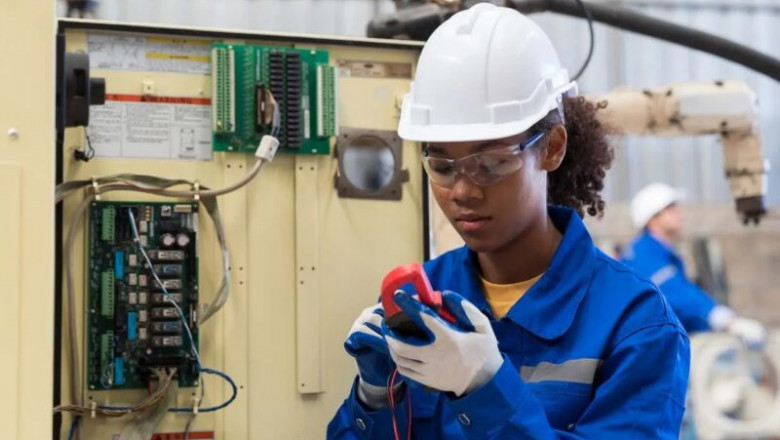views
When it comes to electrical safety in your home or business, the consumer unit—often referred to as a fuse box—is one of the most critical components. It controls and distributes electricity throughout your property while protecting the electrical circuits from damage caused by overloads or faults. Whether you're upgrading an old unit or installing one in a new property, understanding the importance, process, and legal requirements of consumer unit installations is essential.
What is a Consumer Unit?
A consumer unit is the main control center for all the electrical circuits in your property. It typically contains:
-
Main switch: This isolates the electrical supply to your home.
-
Circuit breakers (MCBs): These automatically cut off the power when there’s a fault or overload on a circuit.
-
Residual current devices (RCDs): These offer protection against electric shocks by detecting earth faults and shutting down the electricity flow almost instantly.
-
Surge protection devices (SPDs): Increasingly common, these protect your appliances from voltage spikes caused by things like lightning or power surges.
Older consumer units often use rewirable fuses or outdated technology that doesn’t meet current safety standards. Upgrading to a modern consumer unit is not just a matter of convenience; it’s often a legal and safety requirement, especially during property renovations or sales.
When Should You Upgrade Your Consumer Unit?
There are several signs and situations where upgrading your consumer unit becomes necessary:
-
Frequent Tripping: If your circuits trip regularly, your unit might be overloaded or not designed to handle modern electrical demands.
-
Old or Outdated Units: If your fuse box still uses ceramic fuses or lacks RCD protection, it's likely time for an upgrade.
-
Home Renovation or Extension: Any major electrical changes, such as adding a new kitchen, bathroom, or outbuilding, usually require a more advanced consumer unit to safely handle the increased load.
-
Home Purchase or Sale: Mortgage lenders or home buyers often request that properties meet current electrical safety standards, which may necessitate an upgrade.
-
Electrical Installation Condition Report (EICR) Recommendations: If your report flags the need for an upgrade, it’s essential to act to remain compliant and safe.
The Installation Process
Installing or upgrading a consumer unit is a complex and potentially dangerous task, which is why it should always be carried out by a qualified professional. Here’s what the process typically involves:
-
Initial Assessment: The electrician evaluates your current system, including load requirements, condition of existing wiring, and compliance with regulations.
-
Power Shutdown: The electricity supply is completely turned off to safely remove the old consumer unit and install the new one.
-
Wiring and Circuit Checks: Each circuit is tested for safety and compatibility with the new unit. Faulty wiring must be addressed before the new unit is connected.
-
Installation of the New Unit: The new consumer unit is mounted, connected, and configured. This includes setting up the RCDs and MCBs in the correct positions.
-
Testing and Certification: The electrician will thoroughly test the installation, issue a certificate of compliance, and notify the local building control authority if required under Part P of the Building Regulations.
If you're based in Kent, hiring a local professional is often the best way to ensure a quick and compliant installation. For example, an Electrician in Sevenoaks will be familiar with regional standards and quicker to respond to any post-installation issues.
Legal and Safety Considerations
In the UK, all consumer unit installations must comply with the BS 7671 Wiring Regulations. Part P of the Building Regulations also requires that certain electrical work in domestic dwellings is either carried out by a registered electrician or inspected and tested by a qualified third party. Non-compliance can lead to fines, invalidate insurance, and pose serious safety risks.
Additionally, landlords must ensure that consumer units in rental properties meet current standards and have regular EICRs conducted (at least every five years) to maintain legal compliance.
Benefits of Upgrading Your Consumer Unit
Upgrading your consumer unit isn’t just a box-ticking exercise—it comes with real advantages:
-
Improved Safety: Modern units with RCDs and surge protection greatly reduce the risk of electrical fires and shocks.
-
Increased Capacity: They can handle the increased load from modern appliances and home additions like electric showers or EV chargers.
-
Futureproofing: New units are designed to accommodate future upgrades, saving time and money down the line.
-
Property Value: A compliant, modern electrical system is a positive selling point for potential buyers.
If you live in West Kent and are considering an upgrade, a qualified Electrician in Tunbridge Wells can help assess your current system and carry out the installation professionally.
Final Thoughts
Consumer unit installations and upgrades are not just technical updates—they are vital investments in your property's safety, functionality, and compliance with the law. Whether your current unit is outdated or you're planning a renovation, working with a certified electrician ensures that your upgrade is done right, the first time.
By staying informed and proactive, you can avoid costly repairs, reduce risk, and enjoy the peace of mind that comes with a modern, safe electrical system.






















Comments
0 comment